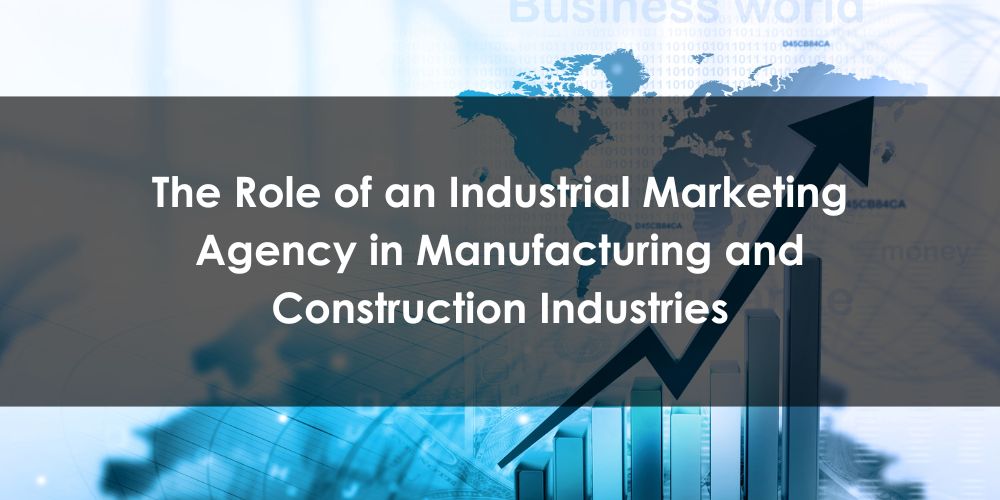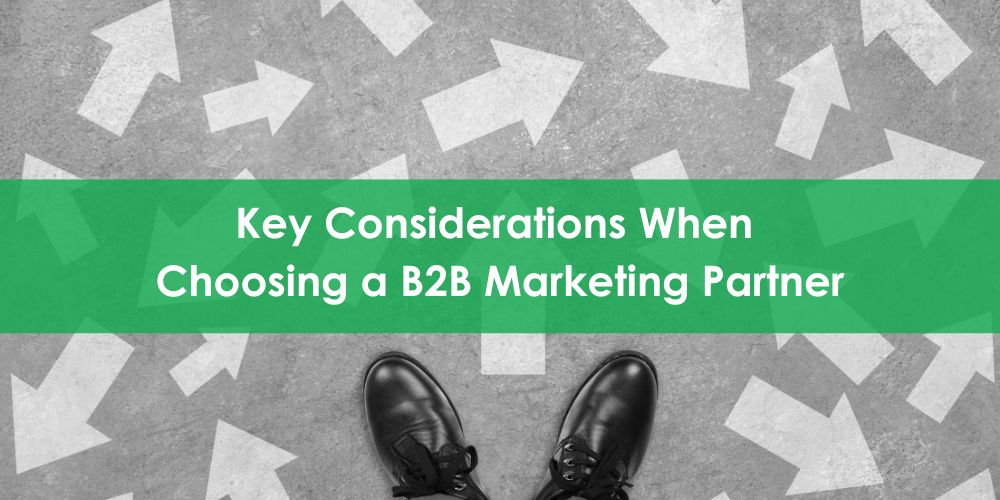The Role of an Industrial Marketing Agency in Manufacturing and Construction Industries
I. Introduction to The Role of an Industrial Marketing Agency in Manufacturing and Construction Industries
In the dynamic landscape of today’s business world, every industry requires a specialized approach to marketing. This is particularly relevant when it comes to marketing for manufacturing and construction industries – two pillars of the industrial US economy. These industries, operating primarily in the business-to-business (B2B) sphere, necessitate a distinctive marketing strategy that takes into account their unique needs, challenges, and opportunities. This is where the role of an industrial marketing agency becomes crucial.
II. Understanding Industrial Marketing
Industrial marketing, also known as B2B marketing, differs significantly from traditional consumer marketing. As its name suggests, it focuses on promoting goods and services to other businesses, often involving high-value transactions, complex decision-making processes, and long sales cycles. This type of marketing is common in sectors such as manufacturing, construction, and distribution, where goods are typically sold not to end consumers but to other companies.
In the realm of industrial marketing, manufacturing marketing, and construction industry marketing, the buying process often involves multiple stakeholders, each of whom plays a critical role in the decision-making process. These stakeholders might include engineers, procurement officers, executives, and others who contribute their expertise to make informed decisions about which products or services to purchase. Given this complexity, industrial marketing requires a deep understanding of not only the industry but also the intricate dynamics of the B2B sales cycle.
For instance, relationship building and trust are foundational to industrial marketing. Unlike consumer markets where purchases can often be impulsive, industrial transactions are usually the result of a carefully considered and deliberate decision-making process. Therefore, a successful industrial marketing strategy is not just about generating leads; it is about creating and nurturing relationships that foster trust. Industrial marketing agencies focus on leveraging marketing strategies to build credibility, demonstrate expertise, and deliver consistent value, all of which serve to build trust and nurture long-term relationships with prospective clients.
Moreover, the content required for industrial marketing is typically more comprehensive and detail-oriented. It often includes technical specifications, use-cases, whitepapers, webinars, or case studies. Such content not only helps in capturing the attention of potential clients but also assists them in their decision-making process. Effective industrial marketing agencies have the capabilities to create and distribute this content effectively, positioning your business as a thought leader in your industry.
Lastly, measuring the ROI of industrial marketing efforts can be more complex due to the longer sales cycles and multiple touchpoints involved. Agencies specializing in industrial marketing have the tools and knowledge to track these metrics accurately, providing you with a clear view of your marketing efforts’ effectiveness.
In essence, industrial marketing is a highly specialized field that necessitates a unique set of skills and understanding. An experienced industrial marketing agency can help you navigate this complex landscape, ensuring that your products and services reach the right audience, at the right time, in the right way.
III. The Role of an Industrial Marketing Agency
An industrial marketing agency serves as a strategic partner and driver of marketing programs for their clients. Choosing the right manufacturing marketing agency or construction industry marketing agency is critical for an organization’s success. The following are what you should expect from your marketing agency:
1. Deep Industry Knowledge
A specialized industrial marketing agency brings extensive knowledge about the unique aspects of the manufacturing and construction sectors. They understand the market trends, challenges, regulatory environment, and the competitive landscape. This deep industry knowledge allows them to create effective marketing strategies that resonate with your target audience and align with your business objectives.
2. Lead Generation
One of the primary roles of an industrial marketing agency is to generate high-quality leads. They utilize various strategies, including search engine optimization (SEO), content marketing, and social media management, to increase your online visibility, attract potential clients, and convert them into qualified leads.
3. Nurturing Prospects
After generating leads, it’s crucial to guide these potential clients through the sales funnel. Industrial marketing agencies use strategies such as email marketing, retargeting, and marketing automation to maintain engagement, provide valuable content, and steer these prospects towards making a purchasing decision.
4. Content Creation
Content marketing is a powerful tool in the B2B space. Industrial marketing agencies are adept at creating industry-specific content like whitepapers, case studies, blog posts, and more. This not only helps in attracting leads but also establishes your company as a thought leader in the industry, thus building trust with potential clients.
5. Supporting the Sales Process
Industrial marketing agencies collaborate closely with your sales teams, providing them with valuable leads and insights into customer behavior. Moreover, they assist in creating sales enablement content, such as product sheets and testimonials, which can bolster the sales team in their efforts to close deals.
IV. Choosing the Right Industrial Marketing Agency
While the benefits of partnering with an industrial marketing agency are numerous, it’s crucial to choose the right agency that aligns with your business needs. Here are some factors to consider:
1. Industry Experience
Choose an agency that has extensive experience in your industry. They should understand your target audience, competitive landscape, and the marketing strategies that work best in your sector.
2. Proven Results
Ensure that the agency can provide case studies or examples of how they have driven results for other clients, particularly those in your industry. Tangible outcomes like increased website traffic, lead generation, conversion rates, and revenue growth are important.
3. Range of Services
Not all marketing agencies offer the same services. Depending on your marketing needs, ensure the agency offers the services that align with your goals, such as SEO, content marketing, email marketing, or social media management.
4. Communication and Reporting
Regular communication is key to a successful partnership with a marketing agency. They should provide regular updates and reports on the progress of your marketing campaigns, and be available to answer any questions or concerns you might have.
5. Track Record
Look at the agency’s past work to get a sense of their capabilities. Have they worked with companies in your industry before? What kind of results have they delivered? Case studies, testimonials, and client references can provide valuable insights into an agency’s track record.
6. B2B Expertise
B2B marketing is different from B2C, and not all agencies can effectively navigate this landscape. Ask about their experience with B2B clients and their understanding of the B2B sales cycle, lead generation strategies, and account-based marketing.
7. Approach to Strategy
A good marketing agency should take a strategic approach to your business. Do they take the time to understand your business, your audience, and your goals? Do they develop a customized marketing plan based on this understanding, or do they take a one-size-fits-all approach?
In the highly technical and competitive world of manufacturing and construction, marketing can be a challenging endeavor. However, with the right industrial marketing agency, you can navigate these complexities effectively, generate high-quality leads, foster long-term relationships, and drive your business growth.
V. Conclusion
Navigating the world of industrial marketing is no small task. It requires deep industry knowledge, strategic planning, and a keen understanding of the intricate B2B sales cycle. Whether you’re in the manufacturing or construction industry, an effective industrial marketing strategy is crucial to your business’s growth and success.
At Zag First, we understand the unique marketing needs of industrial businesses. We’re more than just a marketing agency; we’re strategic partners dedicated to helping you generate high-quality leads, nurture those leads through the sales funnel, and ultimately, drive business growth.
Our team of experts will work closely with you to understand your business goals, identify your target audience, and develop a comprehensive marketing strategy tailored to your specific needs. We specialize in creating and distributing compelling, industry-specific content that not only attracts potential clients but also assists them in their decision-making process.
With our experience in industrial marketing and our commitment to delivering measurable results, you can trust us to help you navigate the complexities of the B2B sales cycle, build meaningful relationships with potential clients, and position your business as a leader in your industry.
Ready to take your industrial marketing to the next level? Don’t hesitate to contact us at Zag First. Let’s start a conversation about how we can help you achieve your business goals. Contact us today!





